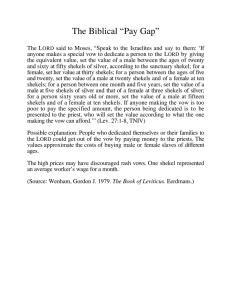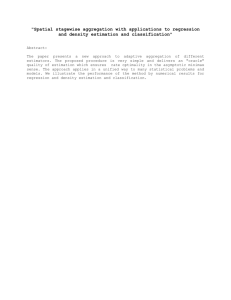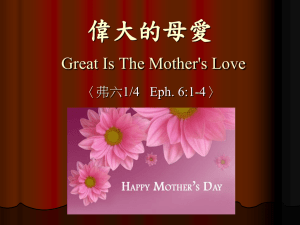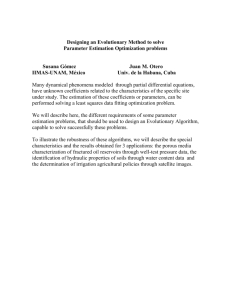Women are less worth than men in the Bible
advertisement
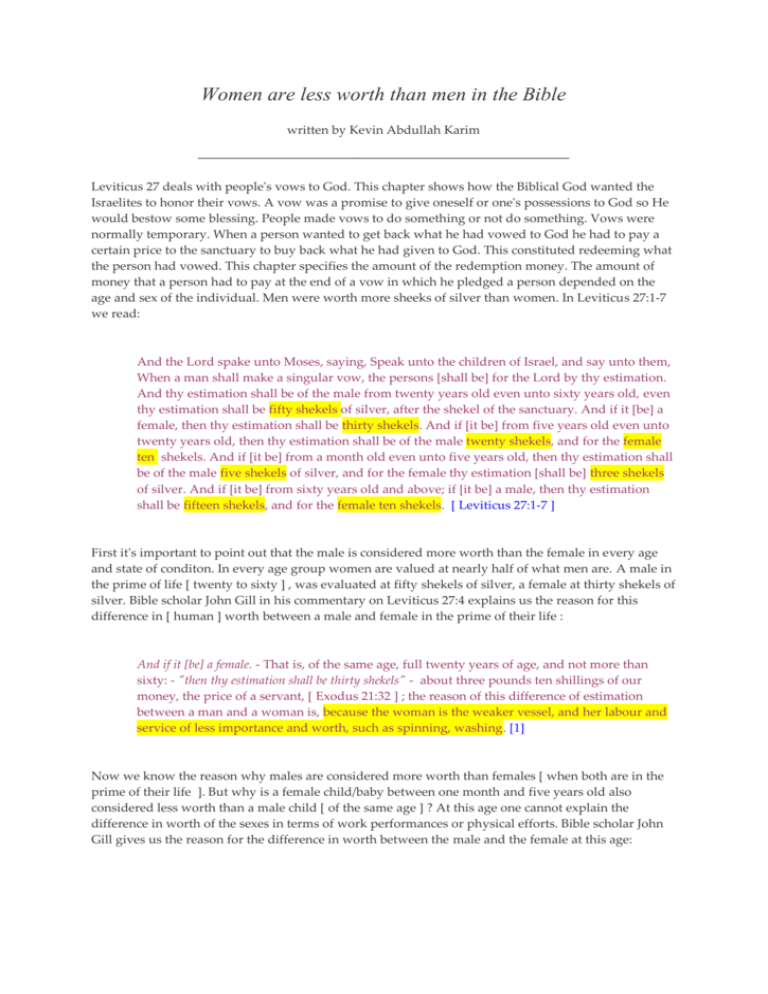
Women are less worth than men in the Bible written by Kevin Abdullah Karim ____________________________________ Leviticus 27 deals with people's vows to God. This chapter shows how the Biblical God wanted the Israelites to honor their vows. A vow was a promise to give oneself or one's possessions to God so He would bestow some blessing. People made vows to do something or not do something. Vows were normally temporary. When a person wanted to get back what he had vowed to God he had to pay a certain price to the sanctuary to buy back what he had given to God. This constituted redeeming what the person had vowed. This chapter specifies the amount of the redemption money. The amount of money that a person had to pay at the end of a vow in which he pledged a person depended on the age and sex of the individual. Men were worth more sheeks of silver than women. In Leviticus 27:1-7 we read: And the Lord spake unto Moses, saying, Speak unto the children of Israel, and say unto them, When a man shall make a singular vow, the persons [shall be] for the Lord by thy estimation. And thy estimation shall be of the male from twenty years old even unto sixty years old, even thy estimation shall be fifty shekels of silver, after the shekel of the sanctuary. And if it [be] a female, then thy estimation shall be thirty shekels. And if [it be] from five years old even unto twenty years old, then thy estimation shall be of the male twenty shekels, and for the female ten shekels. And if [it be] from a month old even unto five years old, then thy estimation shall be of the male five shekels of silver, and for the female thy estimation [shall be] three shekels of silver. And if [it be] from sixty years old and above; if [it be] a male, then thy estimation shall be fifteen shekels, and for the female ten shekels. [ Leviticus 27:1-7 ] First it's important to point out that the male is considered more worth than the female in every age and state of conditon. In every age group women are valued at nearly half of what men are. A male in the prime of life [ twenty to sixty ] , was evaluated at fifty shekels of silver, a female at thirty shekels of silver. Bible scholar John Gill in his commentary on Leviticus 27:4 explains us the reason for this difference in [ human ] worth between a male and female in the prime of their life : And if it [be] a female. - That is, of the same age, full twenty years of age, and not more than sixty: - "then thy estimation shall be thirty shekels" - about three pounds ten shillings of our money, the price of a servant, [ Exodus 21:32 ] ; the reason of this difference of estimation between a man and a woman is, because the woman is the weaker vessel, and her labour and service of less importance and worth, such as spinning, washing. [1] Now we know the reason why males are considered more worth than females [ when both are in the prime of their life ]. But why is a female child/baby between one month and five years old also considered less worth than a male child [ of the same age ] ? At this age one cannot explain the difference in worth of the sexes in terms of work performances or physical efforts. Bible scholar John Gill gives us the reason for the difference in worth between the male and the female at this age: then thy estimation shall be of the male five shekels of silver - somewhat more than ten shillings "and for the female thy estimation [ shall be ] three shekels of silver" - seven shillings, which is the least value put on any; and though the lives of male or female at this age are equally uncertain, and the service of either of little worth when near the full time fixed; yet the preference is given to the male, as being of the more perfect kind, and its life generally most desirable. [2] In other words the biblical concept/theory of male superiority and female inferiority is confirmed by Leviticus 27. Women are less worth than man, literally. In the Bible men are superior in worth to women in all ages and states of condition. Women are viewed and treated as inferiors here [ she is less respected than the male ]. __________________________________________________________________________________________ _______________ References and Notes: [1] John Gill, "exposition on the Old and New testaments" , D.D. Complete and Unabridged Vol. 1: GenesisNumbers [ The Baptist Standard Bearer, Inc. 2006 ] , p.700 [2] Ibid.
